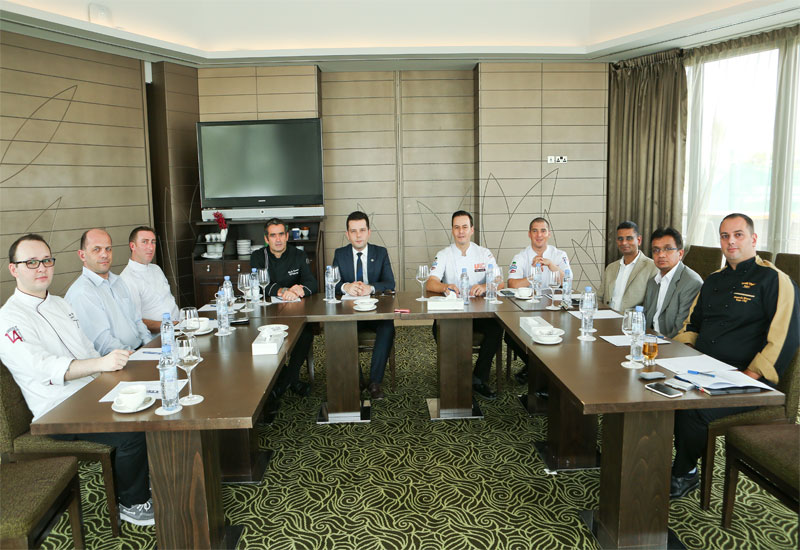Collin Kaskel, chef de cuisine, West 14th Restaurant, Oceana Beach Resort: And they’ll take the food out, leaving it outside until you have time to come down. They don’t care. I’ve had food which I’ve refused, I’ve asked them to come take their stuff back and they don’t.
Triemer: That’s where training comes into play; you have to trust people because you can’t literally stand there. The health and safety department plays a role.
Williams: We have a third party come in and do audits three or fours times a year. Laws change quite often so at least if they’re coming three or four times, we are up-to-date. And because we’re on the operational side we don’t necessarily see what is wrong.

| Advertisement |
Manca: I will give you an example — I was passing by receiving, there was truffle cream in a glass jar and it was really hot. I said, ‘it is nearly 50 degrees’ and the driver said, ‘but this is a dry store item’. He doesn’t know — for him, it’s not a chilled item.
So we had to return it and call the supplier immediately. For certain products we don’t have much of a choice because they come from specific suppliers. We are cornered and have to find a compromise otherwise we don’t get the product.
Saeed: What we are looking at is that the supplier should deliver their product to the hotel at the right temperature. HACCP or a food safety management system addresses this till delivery, until which time the supplier is responsible.
We introduced a transportation approval system just to make sure that the vehicle used for the food transportation is approved. We advise the industry that in case of non-conformity from any supplier, ask them to send a corrective action report.
Marc Hayes, executive chef Arabia, Unilever Food Solutions: Training, how to treat the products, how to transport them is very important. Some of our items, like our mayonnaise which is a dry store item, needs to be kept at ambient room temperature, which in the Middle East is not what it is in Europe, which is at 18-22°C.
We do audit but whether we do this often enough, once every six months… that’s very interesting, the point about corrective action. How far back does that go?
Pettit: Do you track and monitor suppliers who have complaints?
Article continues on next page ...









 Search our database of more than 2,700 industry companies
Search our database of more than 2,700 industry companies









